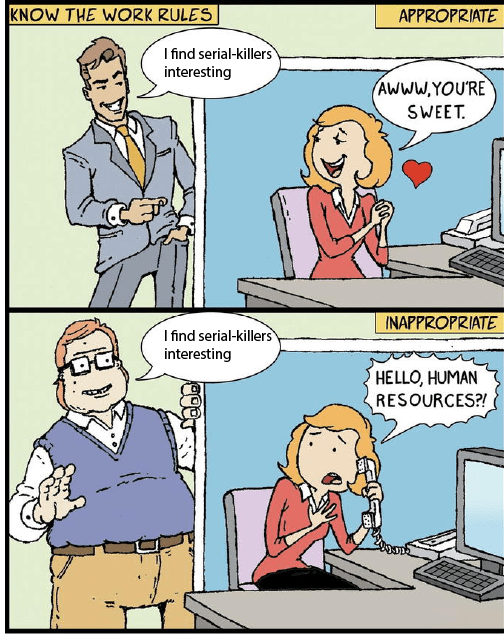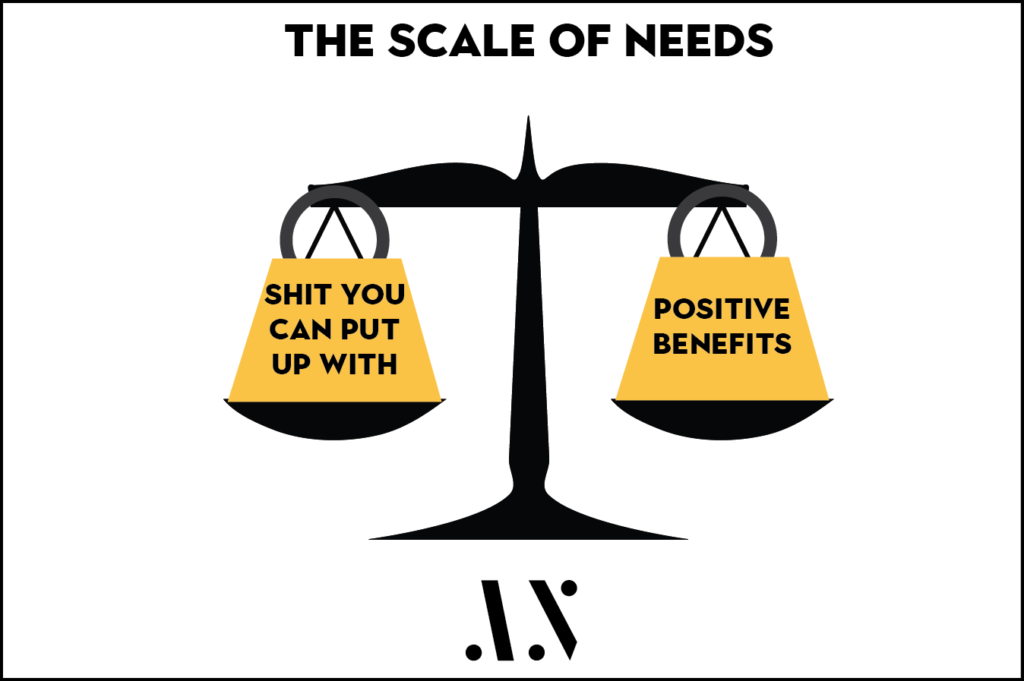The article below lists spoilers for Berserk and Cyberpunk Edgerunners

Griffith is a highly charismatic leader with one goal in mind: become the ruler of a kingdom. To fulfill his dream, Griffith utilizes his skills and beauty to form the band of the falcon, a once-lost but now loyal crew that fights for his cause.
This unquestionable loyalty has led to the demise of the group, where Griffith sacrificed his fleet with no remorse to descend into a powerful demon lord and fulfill his goals.

Lucyna is a reserved yet charming woman with a dream of escaping Night City and visiting the moon. Along the way, Lucy romances David, a naive street rookie that eventually becomes the leader of a gang.
While unintentionally manipulative and guised as love, Lucy’s developing relationship with David changed his purpose of living. Before going on a rampage and meeting his end, David grants Lucy’s wish by freeing and getting her to the moon.

Finally, Bhagwan Shree Rajneesh (also known as Osho) was an Indian spiritual healer and yoga instructor who led a sex-positive tantric yoga cult. Osho formed one of the biggest cults in the world, the Rajneesh.
With thousands of people following Osho’s every word, the cult leader planned to poison Oregon’s water supply with Salmonella and commit a bioterror attack as a show of power and influence.
Osho’s reassuring and holy-like characteristics shown to his cult members led his followers to blindly execute his orders. His influence reached a point where members of the cult’s existence and purpose were defined by Osho.
All of the stories mentioned above share one common point: manipulation. At the center of every grandiose tale and historical moment, you can find a charismatic and charming figure who directly or indirectly manipulates others and alter their lives permanently.
Yet despite these influential people with grandiose achievements (both good and bad), you probably think of a corporation or politician that exploits and controls people when talking about manipulation.
Rarely do we view this dynamic from another point of view or from the perspective of the person being manipulated. Why did the band of falcons follow Griffith? Did David see more value in Lucy’s existence than his? And what drew people to Osho’s cult?
Although manipulation is one-way interaction where the more mentally-strong person enacts their tricks on others; We like to think that we are manipulation-proof. That we are invincible to lies and able to recognize manipulators and shut down their tricks.

Yet, we purchase Nestle products, follow lifestyle gurus and, actively defend billionaires. You’re not the exception to the rule and more importantly: You’re not manipulation proof (hey I said the title of the article, how cool).
Do We Even Want to Manipulate?
Since we view manipulation as a powerful ability that helps us achieve our goals, it is no surprise that humans desire to learn the ability to manipulate others to their advantage.
The success of books like ‘The 48 Rules of Power’ (over 2 million copies sold) and ‘How to Win Friends and Influence People’ (over 30 million copies sold) prove that there is a huge demand for learning how to manipulate.
This is further exacerbated by the entertainment media which portray successful characters like James Bond (specifically, Sean Connery’s Bond) as charismatic social figures with the power to sway others.
In extreme cases, manipulation is also employed as the main tool by cult leaders and terrorist groups. Their high charisma and strong attitude allow them to manipulate and brainwash others.
Suffice to say, many people desire the ability to charm any person, sell anything to anyone, and have others do their tasks while they reap the credits. If charisma and manipulation were a drug, then we would be addicted.
Unfortunately for eager manipulation learners, most of the content out there (courses, books, and videos) simply exists to fulfill the demand of the market; Much like the efficacy and use case of self-help books.
We Accept Being Manipulated So Long As…
However, this isn’t to say that we always reject manipulators. Generally, we tend to accept and forgive objectively bad (even dangerous) manipulators (like Hannibal Lecter, Maki, and Richard Ramirez) so long as they are attractive.
Conversely, it implies that you are more likely to be manipulated by someone who you consider hot or pretty. This explains why in a lot of cases, cult leaders (Jared Leto) and serial killers (Ted Bundy) can easily manipulate others through their beauty.
Researchers call this the ‘Attractiveness Privilige’ or ‘the Halo effect’ and it is an effect in which attractive people have an advantage over others due to their looks. Such that hot figures are more likely to be considered for a job and be forgiven for their actions.

When we view manipulation through the attractiveness privilige, we can observe a recurring pattern that incentivizes people to willingly manipulate us so long as they are pretty.
If you don’t believe me, you can look back on your own behavior and past. You’ve probably uttered words like “this person/character can ruin me” or believed your ex when they said they weren’t cheating on you.
How We Get Manipulated
Talking about relationships, manipulation is often brought up in romance. Whether it’s guilt-tripping or gaslighting, there are many ways to describe the manipulation of a partner (Maybe that’s why you prefer to remain single).
Sure, when viewing a relationship from an outsider’s perspective, it is easy to pick up on the toxic signals. However, it is an entirely different thing when viewed from the inside.
Personally, I always wondered what makes a person stay in such a painstakingly obvious harmful relationship. Turns out, the same reasons why we put up with bad partners is the same reason we settle for manipulation.
The Scale of Needs

So long as a partner can meet our needs and appreciate us, we are willing to put up with them. Whether we are aware of being lied to or not, the benefits of being with that person far outweigh their behavior.
Think of it like a scale of needs. On one hand, we have our partner’s negative traits and on the other hand, we have our needs. After defining just how much are we willing to put up with, the other side of the scale can hold an equivalent amount.
For example, the band of the falcon greatly benefitted from Griffith when they were alive. He provided them with food, shelter, and even recognition for members who performed well.

However, when Griffith was too busy expanding his power he stopped fulfilling moral needs. This makes Guts feel a lack of appreciation and leads him to question his purpose, driving him to leave the band of the falcon in search of finding these moral needs.
Wanting to Become Them
Another reason why we accept the manipulation of highly charismatic people lies within their traits. Specifically, we look up to leaders and figures in power because they own a skill, trait, or lifestyle that we desire.

Consequently, if these people were to tell us to do something, we are more likely to listen to these orders regardless of rationality. At the same time, if an insignificant person (someone we do not look up to) repeats a similar statement, we would most likely ignore them.
In fact, wanting to become someone we look up to can makes us blind to their manipulation. This is most likely due to our bias toward our preferences which carries to that person.
The logic is straightforward: We think that X trait is cool, Y person possesses X trait, therefore Y person is cool, and we will unconditionally follow Y person.
A perfect example would be David’s relationship with Lucy. In the first episodes of the show, we discover that David idolizes street life and gang culture. When Lucy introduces him to this lifestyle through her experience and spontaneity, he begins to worship and admire her.
Even when Lucy betrayed him earlier on, David’s far-gone unquestionable fondness towards her allows him to easily forgive her and trust her once again, proving just how much Lucy indirectly manipulated David’s opinion of her.

You could argue that their love was part of why David cared so much for Lucy. However, I believe that if it wasn’t for David’s interest in crime culture then he wouldn’t even bat an eye toward her (which can be noticed in episode 1 of edge runners).
A New Purpose
So far, all the reasons why we get manipulated involve someone we are intimate with. While familiarity plays a crucial role in manipulation efficiency (mostly establishing the trust needed), it is not necessary to successfully manipulate someone.
Instead, a lack of purpose and ambition can naturally make you vulnerable to mental villainy. To understand my point, imagine that you are a plain puzzle piece.

When you are living day to day with no goal or belief system, others can easily shape you to fit their puzzle.

You may experience fulfillment and a sense of belonging at the start but after a while, you begin to feel negative emotions. Face it, you are stuck in a puzzle grid filling a place for somebody else’s sake.
To fix this, you need to define your own goals and carve out your preferred shape to fill in a puzzle grid that matters to you.

Manipulators can easily prey on despaired lost individuals since they make for the most loyal people. Such was the case for Osho’s cult, the Rajneesh. Recorded interviews with members of this cult show that Osho was a spiritual figure for them and provided them with tranquility and calm.
This allowed Osho to isolate his cult from the rest of the world and train them with his spiritual practices. Over time, the Rajneesh believed in their leader and replaced their goals with Osho’s and even associated their purposefulness with him.

Finally, it should also be clarified that advising to find your purpose does not explicitly mean religion. While religion and spirituality may help (case by case), my definition is broad including things as minuscule as feeding stray animals every day to as large as dedicating your life to religion.
So How Can You Improve Your Manipulation Defense?
By understanding the scale of needs and shaping your puzzle piece, you can take a step forward to being aware of the manipulation. While you may never become manipulation-proof, you can learn how to become manipulation-resistant.
What you should take away from this blog post should be the following: Be curious and question your relationship with others. Why do you enjoy their company and why do you look up to them? Answering these questions allows you to better appreciate that person or realize their manipulation.
